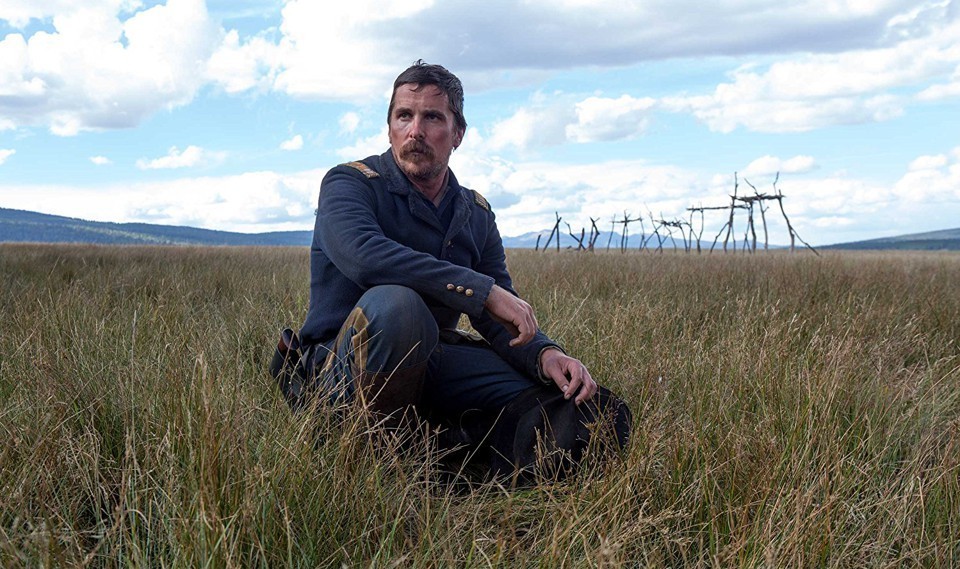
Despite some great performances and stirring—if occasionally hyperviolent— imagery, Scott Cooper’s revisionist western Hostiles plays a bit like Both Sides: The Movie. It starts with a truly harrowing scene in which a Comanche war tribe chases and slaughters a defenseless white family. The only survivor is the mother, Rosalie Quaid (Rosamund Pike), whom we last see crouching and terrified in the woods. We then cut to the plaintive sounds of a woman screaming, off camera, and assume it’s Rosalie. But it’s a bait and switch: This time, it’s a Native-American woman, wailing as she and her family are roughly captured by a team of Union soldiers, led by the flinty-eyed Capt. Joseph J. Blocker (Christian Bale). The transition is clever, if heavy-handed. Unfortunately, that transition comes close to summing up the message of the whole film: Both sides did terrible things and both sides have good people, so why can’t we all just get along?
It’s post Civil War New Mexico and America is in a strange limbo—still rounding up and imprisoning Native Americans, while beginning to reckon with its own history of racial violence and cruelty. Bale’s Blocker, however, has no ambivalence. In his heart, he believes that Native Americans are bad and he’s doing righteous work. So when he’s asked by his commander (Stephen Lang) to escort the dying Cheyenne Chief Yellow Hawk (Wes Studi) and his family back to their homeland of Montana, he resists. However, the chief threatens to strip Blocker of his pension if he doesn’t agree to the assignment, so he agonizingly acquiesces.
Of course, we know where this is going, especially with Studi—the very soul of wisdom, decency, and stoic strength—as Yellow Hawk. But Cooper has to first clearly establish that, despite Blocker’s manifest racism, he’s a GOOD guy. Exhibit A: The caravan stumbles across Rosalie, essentially in shock, and Blocker tends to her, gently and kindly. Exhibit B: Blocker has a black soldier, Corp. Henry Woodsen (Jonathan Majors), under his command. At some point in the film, the two men essentially exchange “I love you, mans” and Blocker talks about Woodsen as the one of the finest men he’s ever led. Just to recap: Blocker is chivalrous and, regarding his treatment of African Americans at least, on the right side of history.
Even with its clearly good intentions, the racial politics of Hostiles are still problematic. The Cheyenne tribe isn’t given much interiority beyond the clichés—they’re shown to be peaceful, more in touch with the land, intuitively empathic, blah, blah, blah (oh yeah, and they also kick butt—but only when absolutely necessary). And I was a bit concerned with the good tribe/bad tribe dichotomy Cooper has set up with the Cheyennes and the Comanche.
Still, it’s hard to resist as Blocker and Yellow Hawk gain grudging and hard-won respect for each other and Rosalie and Blocker develop a kind of real emotional intimacy. Cooper is something of a master of macho poetry—he makes films about taciturn, often violent men who can’t fully express the depths of their feelings. Repressed dudes, this is your chance to ugly cry.
